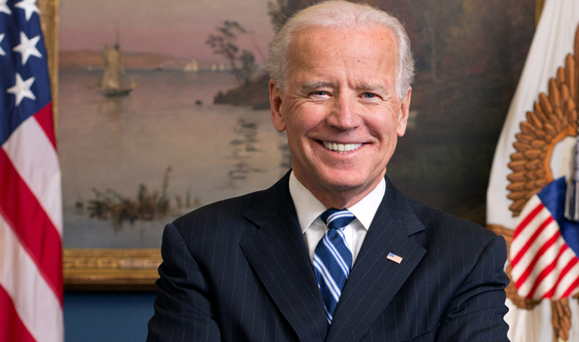Vice President Joe Biden is suddenly the most popular politician in Washington. On the fiscal cliff he galloped to the rescue and cut the deal with Senator Mitch McConnell, and now on gun control he is defying the conventional wisdom again and getting real traction behind his recommendations. He has met with the NRA, Walmart, and every major gun constituency, forcing a dialogue where none existed before and making clear that action will be taken to prevent another Sandy Hook.
Biden’s strong record in his more than 40 years in government – he was first elected to the Senate in 1972, just shy of 30 years old — has earned him respect from both sides of the political spectrum. As Maureen Dowd, writing in the New York Times stated, “In a time when American politics is so polarized Biden has managed the extraordinary trick of being able to appear reasonable to both sides. [He] can spread everything out on the table and negotiate his way through all of his former colleagues’ shortcomings, weaknesses, fears and frailties.”
Biden was born in the Irish heartland of Scranton, Pennsylvania, one of the most Irish cities in America. There were already political genes in his DNA.
Edward F. Blewitt, his grandmother’s father, was the first Irish Catholic state senator. He was also the co-founder of the Friendly Sons of St. Patrick in Scranton, around 1908. There is still a plaque in existence in Scranton that shows he was one of the founding members.
Like many from the western part of Ireland, Biden’s Finnegan relatives were Gaelic speakers, and family lore has it that his great-grandmother Finnegan used to read the letters from home for those who could not and she’d write back in Gaelic for them.
In response to questions submitted by Irish America to the Vice President prior to his joining us at our Hall of Fame gala luncheon on March 21, Biden confirmed that he would like to visit his ancestral homeland.
Asked if he was going to Ireland this year, he said, “I hope so. And I’d like to take my family with me.”
As for how his Irish roots have shaped his life, he stated, “They’ve actually been critical to my career. The Irish ethic of loyalty is important, that you have an obligation to help if you can, that you should speak up when you see what you consider to be an injustice, and that public service is an honorable profession. In my family, politics wasn’t a dirty word, it was about righting things that were wrong.
“Making sure everyone was accorded the dignity they deserved. The best vehicle for this was politics. That’s how your rights are guaranteed.”
Asked to name some of his political heroes the Vice President responded: “Wolfe Tone. Robert Kennedy. Clarence Mitchell [longtime NAACP chief lobbyist – he was instrumental in passing the big civil rights laws]. Mike Mansfield for his integrity, and Hubert Humphrey for his heart.”
In an earlier interview with Irish America when he was still a senator, Biden, who has read Irish history extensively, elaborated on Tone, the leader of the 1798 Rebellion.
“Wolfe Tone is the embodiment of some of the things that I think are the noblest of all. He was a Protestant who formed the United Irishmen. He had nothing to gain on the face of it but he sought to relieve the oppression of the Catholics caused by the penal laws. He gave his life for the principle of civil rights for all people.
“I view him as an honorable figure. He was obviously passionate, which I admire. He had the ability to make his own comfort secondary to the greater good.”
In that same interview, Biden talked about growing up in Scranton, in what he described as “a predominantly Irish neighborhood and an overwhelmingly Irish parish. The centerpiece of life in Scranton was the church, the nuns, the priest, the monsignor,” he recalled.
“Everybody had a sister who was a nun, everybody had a brother a priest. Vocations were a big deal.”
His first Irish memories are of encountering his Aunt Gertie on visits to his grandparents’ house.
“I’d go upstairs and lie on the bed and she’d come and scratch my back and say, ‘Now you remember, Joey, about the Black and Tans, don’t you?’ She had never seen the Black and Tans, she had no notion of them, but she could recite chapter and verse about them.
“Obviously there were immigrants coming in who were able to talk about it [the War of Independence in Ireland. The Black and Tans were British Army irregulars who were particularly brutal] and who had relatives back there. Aunt Gertie was born in 1887. After she’d finish telling the stories, I’d sit there or lie in bed and think at the slightest noise, ‘[the Black & Tans] are coming up the stairs.’”
Biden confessed to hating Irish wakes, which were a constant when he was a child. “I hated it, you know, everybody sitting around and drinking and the corpse in the next room.” But he went on to say, “There is something about the Irish that knows that to live is to be hurt, but we’re still not afraid to live.”


Leave a Reply